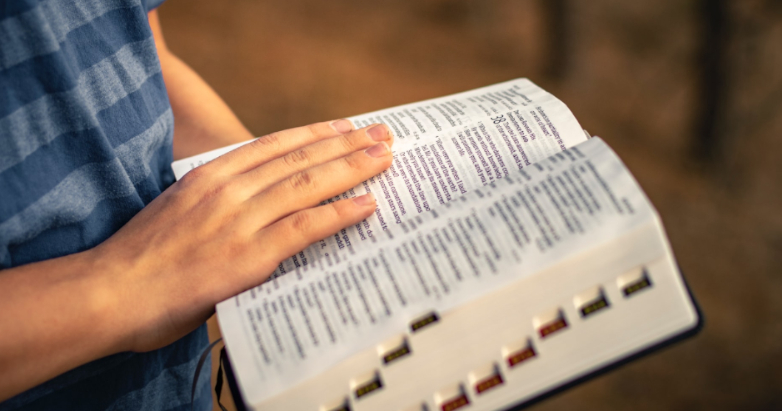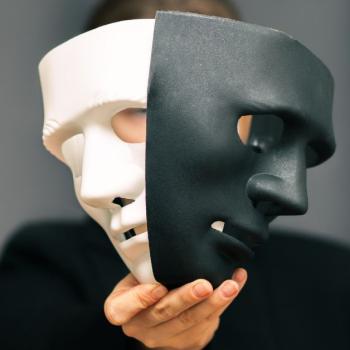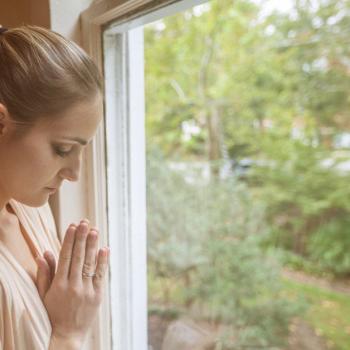
Forgiveness, kindness and compassion are just some of the qualities usually related to Christianity. Along with this is the popular Bible verse about turning the other cheek. All of these can make Christians a vulnerable group to maltreatment and all kinds of bullying.
How do you preach being kind without opening yourself and your loved ones to abuse? Is it wrong to defend yourself from physical and emotional harm?
The Catechism of the Catholic Church clearly states:
“Love toward oneself remains a fundamental principle of morality. Therefore it is legitimate to insist on respect for one’s own right to life.” (CCC 2264)
Why Christians should defend themselves from bullying
1. Because we are made in God’s image
Being created in the very image of God, we should preserve the value and dignity of human life. This includes defending ourselves from bullying and any undue harm.
“So God created humankind in his image,
in the image of God he created them…”
-Genesis 1:27 (NRSVCE)
2. Because allowing abuse is not an act of goodness
Letting others continue to abuse us is not loving those people enough to help them change their ways. We should let other people know that by bullying and harming others, they are committing a great evil. And this evil done is not only upon others. It is also an evil that harms them from within.
“For what shall it profit a man, if he gain the whole world, and suffer the loss of his soul?” – Mark 8:36 (DRA)
3. Because allowing ourselves to be bullied is setting an example for others to be abused
We have a responsibility not only for ourselves but for other people. Do we wish to see other people being the victims of bullying and other harm?
“Defend the rights of the poor and the orphans;
be fair to the needy and the helpless.
Rescue them from the power of evil people.”
– Psalm 82:3-4 (GNT)
4. Because being unnecessarily hurt would keep you from doing more good in this life
Being continuously hurt is not a sign of holiness. To be holy, we must learn to love and to do what is good.
How can we serve other people when we are incapable of defending ourselves? How can we serve God and our neighbors if we let others control us and manipulate our lives?
“Like a muddied spring or a polluted fountain
are the righteous who give way before the wicked.”
– Proverbs 25:26 (NRSVCE)
What does turning the other cheek mean?
Rather than thinking about the literal interpretation of the Bible verse about turning the other cheek, we should think about its deeper meaning.
1. It means not letting ourselves be enslaved by thoughts of hatred
It is natural to feel offended when a person slaps your face. But when we allow this hurt to turn into deep hatred, we are already harming ourselves.
To turn the other cheek is to turn to forgiveness instead of hatred. It is to set ourselves free from the endless cycle of negative thoughts and feelings that would only ruin our lives.
2. It means not wasting our lives by focusing on revenge
Being a victim of bullying can fill us with negative thoughts about the other person. It can make us focus only on getting the revenge we want.
Turning the other cheek is like turning to another side of the story. Instead of continuing to look at your aggressor, you must look at the other good things you can still do in life.
3. It means avoiding the temptation to commit a greater evil
Our human tendency is not only to return the harm we have received. Many times, we could do even worse things that could damage us and the people around us. To turn the other cheek then is to mean forgetting about getting even, especially if it means committing a far greater evil and sin.
4. It means being able to stand up for ourselves
Turning the other cheek is a powerful image of not being afraid of the other person.
Instead of thinking of it as a sign of weakness, it can mean having the courage to challenge another person’s actions. To think about it deeper is to realize that we should not be resorting to cowardice.
Turning the other cheek is being able to stand up for our beliefs despite the difficult consequences we may face.
5. It means trusting in the justice of God
To turn the other cheek is to turn to God and to trust that He will be the final judge of everything. He will judge with true justice and we can be certain that He will protect and defend the rights of the innocent ones.
“Never take revenge, my friends, but instead let God’s anger do it. For the scripture says, ‘I will take revenge, I will pay back, says the Lord.’” – Romans 12:19 (GNT)
What can we learn from the example of Jesus?
To properly understand what Jesus says, we must take note of all the other things He said and did. We can see and follow the example He showed through His life.
1. Jesus spoke with authority and answered those who criticized Him
Jesus was never someone who acted fearful or cowardly. He was confident about Himself and His mission in life.
He spoke bravely against the hypocrites who wanted to trap Him and see fault in Him.
2. Jesus did not let the people throw Him off the cliff
There was a time when the people who heard Jesus’s message got so angry that they wanted to throw Him over a cliff. But Jesus did not let them push Him or harm Him. He simply walked away.
“They rose up, dragged Jesus out of town, and took him to the top of the hill on which their town was built. They meant to throw him over the cliff, but he walked through the middle of the crowd and went his way.” – Luke 4:29-30 (GNT)
3. The voluntary sacrifice of Jesus at the cross served a greater purpose
While we may all know the passion of Jesus leading to His crucifixion, we should remember that this was not an act of weakness or cowardice.
Jesus was not passive at all. He was like a warrior doing battle to protect those whom He loves. His sacrifice is that of a hero who saves others even if it means offering His own life.
“No one has greater love than this, to lay down one’s life for one’s friends.” – John 15:13 (NRSVCE)
4. Jesus did not seek vengeance
Even at the point of death, Jesus did not focus on hatred for those responsible for His crucifixion.
He trusted the Father and even asked for the forgiveness of His enemies.
“Father, forgive them; for they do not know what they are doing.” – Luke 23:34 (NRSVCE)
5. Jesus questioned the one who actually slapped His face
When Jesus was being questioned by the High Priest, Jesus directly challenged the reason why one of the guards slapped Him.
“I have always spoken publicly to everyone; all my teaching was done in the synagogues and in the Temple, where all the people come together. I have never said anything in secret. Why, then, do you question me? Question the people who heard me. Ask them what I told them—they know what I said.”
When Jesus said this, one of the guards there slapped him and said, “How dare you talk like that to the High Priest!”
Jesus answered him, “If I have said anything wrong, tell everyone here what it was. But if I am right in what I have said, why do you hit me?”
– John 18:20-23 (GNT)
On Bullying and Being a Christian
“But I say to you, Do not resist an evildoer. But if anyone strikes you on the right cheek, turn the other also…” – Matthew 5:39 (NRSVCE)
Let us never try to interpret the Scriptures without the light of God’s love and wisdom.
Jesus loves us. He does not want us to suffer from hatred or to waste our lives focusing on vengeance. He wants us to trust in Him and to go about doing every good we possibly can. And this includes defending our God-given lives as well as the lives of our loved ones.
Bullying, abuse and other forms of violence should never be tolerated. But neither should we allow them to ignite a never-ending cycle of vengeance.
Let us continue to love, even if it means loving our enemies. This includes praying for them, helping them to change and never allowing them to cause greater harm by being the very victims of their abuse.
“After I looked these things over, I stood up and said to the nobles and the officials and the rest of the people, ‘Do not be afraid of them. Remember the Lord, who is great and awesome, and fight for your kin, your sons, your daughters, your wives, and your homes.’”- Nehemiah 4:14 (NRSVCE)
Jocelyn Soriano writes about relationships and the Catholic faith at “Single Catholic Writer”. She wrote the books Mend My Broken Heart, Beloved, Defending My Catholic Faith and Questions to God.
You may also want to read “How Do You Live as a Catholic in a Godless World?”














